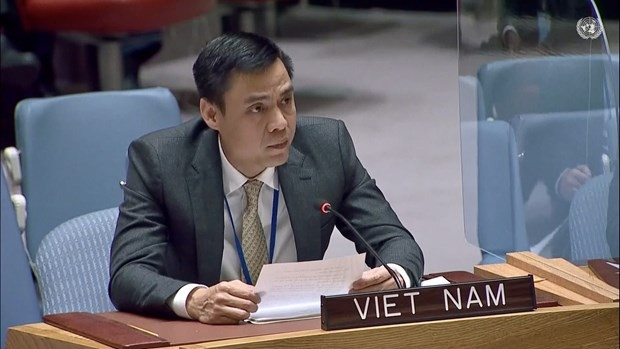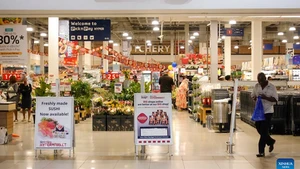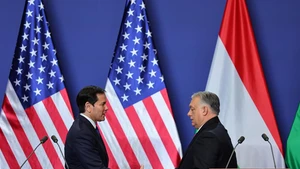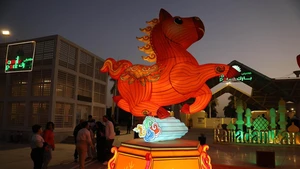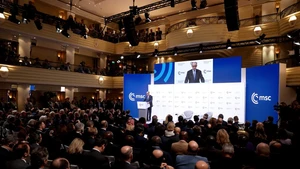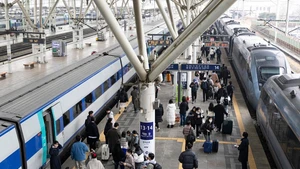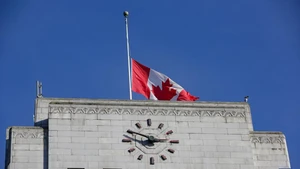During the debate, the Vietnamese diplomat said Vietnam shares the international community's common concern about increasing challenges facing the global food system due to the impacts of the COVID-19 pandemic, climate change and natural disasters.
This seriously affects the food security of countries, especially developing countries and countries with conflicts, he said.
Besides humanitarian efforts, sustainable measures are needed to strengthen the capacity of developing and conflict-affected countries to secure food supplies and improve living standards for people, as well as promote the settlement of root causes of conflicts, peace building, and conflict prevention, Giang stressed.
He spoke highly of efforts made by the UN, the Food and Agriculture Organisation (FAO), the UN World Food Programme (WFP) and international donors in responding to hunger, and suggested the UN and its partners promptly share information on food insecurity caused or aggravated by conflicts, thus timely responses can be made.
The diplomat also underlined the responsibility of parties involved in conflicts for respecting international humanitarian law and not to use starvation of civilians as a method of warfare which are stated in Resolutions 2417 and 2573 of the UNSC.
While highlighting Vietnam’s efforts in ensuring food security, Giang said Vietnam aspires to become a regional “food innovation hub” and continue to contribute to joint efforts in addressing global food security challenges.
Participants expressed deep concern about the unprecedented increase in food insecurity today with more than 811 million people suffering from food shortage.
The international community urgently needs to strengthen coordination to deal with food shortages and related challenges, they said.
